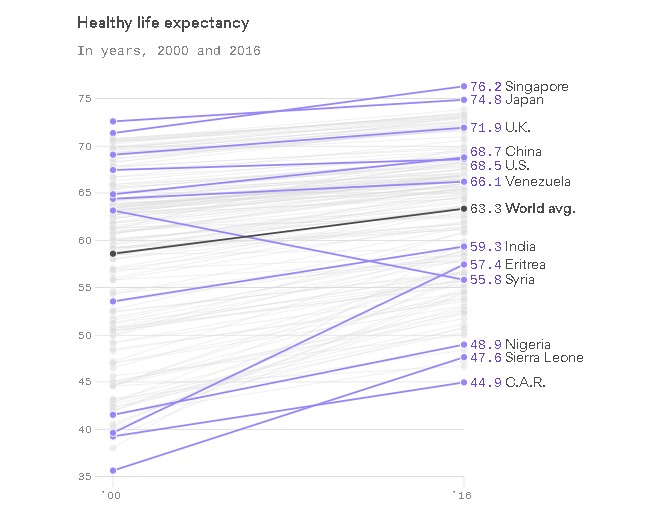
The average number of years babies born around the world are expected to live without any serious medical or health issues increased by about 5 years since 2000.
The developed world is having fewer children and will soon have a much larger population of retired, elderly people with health care needs. This is likely to cause significant financial strain on government programs and the labor force in many countries. But if people are staying healthy longer, it could lessen some of those economic impacts.
“There’s a potential for some significant positive offset through higher elderly workforce participation,” Richard Jackson, president of the Global Aging Institute, told Axios. “It’s also possible — but not certain — that health spans will continue to rise along with life spans, and that may take some pressure off.”
China surpassed the U.S. for healthy life expectancy for the first time in 2016. Yun Sun, director of the China program at the Stimson Center, told Axios that one reason is that obesity and drug use are not as common in China.
Syria has one of the most dramatic declines in healthy life expectancy, as the country has been plagued with civil war, ISIS and a refugee crisis.
The U.S.’s healthy life expectancy has dropped by 0.2 years since 2010. Overall life expectancy has also dropped the past few years, which has been attributed, at least in part, to the opioid crisis.
Japan and Singapore have some of the lowest fertility rates in the world. But the Japanese and Singaporeans are also some of the healthiest, longest-living people in the world. One reason is their diets.
“Compared with other developed nations, Japanese people on average eat fewer calories per day, and in a healthier pattern,” Naomi Moriyama, who has written a book on the subject, told the Today Show.
In addition, Singapore’s healthcare system is efficient and effective, according to the Cigna Global health insurance company.

